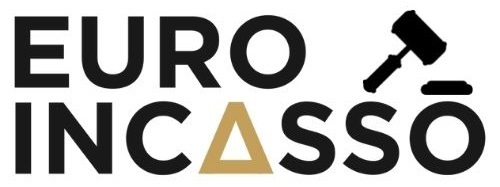For All EU Assignments
We are The Collector, a Collection Agency based in The Netherlands. Do you have debtors in The Netherlands which are hard for you to find? Let us help you.
Debtor
We will make sure that your debtor is aware that their debt hasn’t been paid. The Collector can ensure that debtors are clearly notified with written communication and follow up call – many will pay once they realise that you intend to collect their debt in full and will proceed to legal action if necessary.
What we need?
Information regarding the debt. This includes the amount of the original debt, how it was acquired, when the last payment was received, and the current balance due. The more information you have the better your chances of full recovery.
What we do?
We will contact the debtor ASAP after your assignment. Communication will be by letter, email or Phone in English, French, German or Dutch. If necessary we will schedule a first appointment at the debtor’s home or place of work. Confirm the debt payable based on your invoice etc with the debtor. Schedule the first payment and any follow up appointments if a one off payment is not possible for your client.
What will it cost you?
The first cost will be just 70,00 Euro. This is for the information track we’ll put on your debtor. To make the phone calls, writing letters etc. We will charge the debtor for all other collecting rates. We’ll also check on financial possibilities on your debtor. Not only within their business but also based on their private circumstances if necessary.
If you have further questions or just want to try us for a first assignment, please don’t hesitate to contact us.
The Netherlands
Economy
The Netherlands has a developed economy and has been playing a special role in the European economy for many centuries. Since the 16th century, shipping, fishing, trade, and banking have been leading sectors of the Dutch economy. The Netherlands is one of the world’s 10 leading exporting countries.
Foodstuffs form the largest industrial sector.
Other major industries include chemicals, metallurgy, machinery, electrical goods, and tourism (in 2012 the Netherlands welcomed 11.7 million international tourists). Examples include Unilever, Heineken, financial services (ING), chemicals (DSM, AKZO), petroleum refining (Shell), electronical machinery (Philips, ASML), and car navigation (TomTom).
The Netherlands has the 17th-largest economy in the world, and ranks 10th in GDP (nominal) per capita.
GDP
Between 1997 and 2000 annual economic growth (GDP) averaged nearly 4%, well above the European average. Growth slowed considerably from 2001 to 2005 with the global economic slowdown, but accelerated to 4.1% in the third quarter of 2007. In May 2013, inflation was at 2.8% per year.[90] In April 2013, unemployment was at 8.2% (or 6.7% following the ILO definition) of the labour force.[91]
Debtor
A debtor is an entity that owes a debt to another entity. The entity may be an individual, a firm, a government, a company or other legal person.
The counterparty is called acreditor. When the counterpart of this debt arrangement is a bank, the debtor is more often referred to as a borrower.
If X borrowed money from his/her bank, X is the debtor and the bank is the creditor. If X puts money in the bank, X is the creditor and the bank is the debtor.
It is not a crime to fail to pay a debt. Except in certain bankruptcy situations, debtors can choose to pay debts in any priority they choose. But if you’ve failed to pay a debt, you have broken a contract or agreement between you and a creditor. Generally, most oral and written agreements for the repayment of consumer debt – debts for personal, family or household purposes secured primarily by a person’s residence – are enforceable.
However, for the most part, debts that are business related must be made in writing to be enforceable by law. If the written agreement requires the debtor to pay a specific amount of money, then the creditor does not have to accept any lesser amount, and should be paid in full.
Also, if there was no actual agreement but the creditor has proven to have loaned an amount of money, undertaken services or given the debtor a product, the debtor must then pay the creditor.
If you have any query then please contact Us!
Result:
